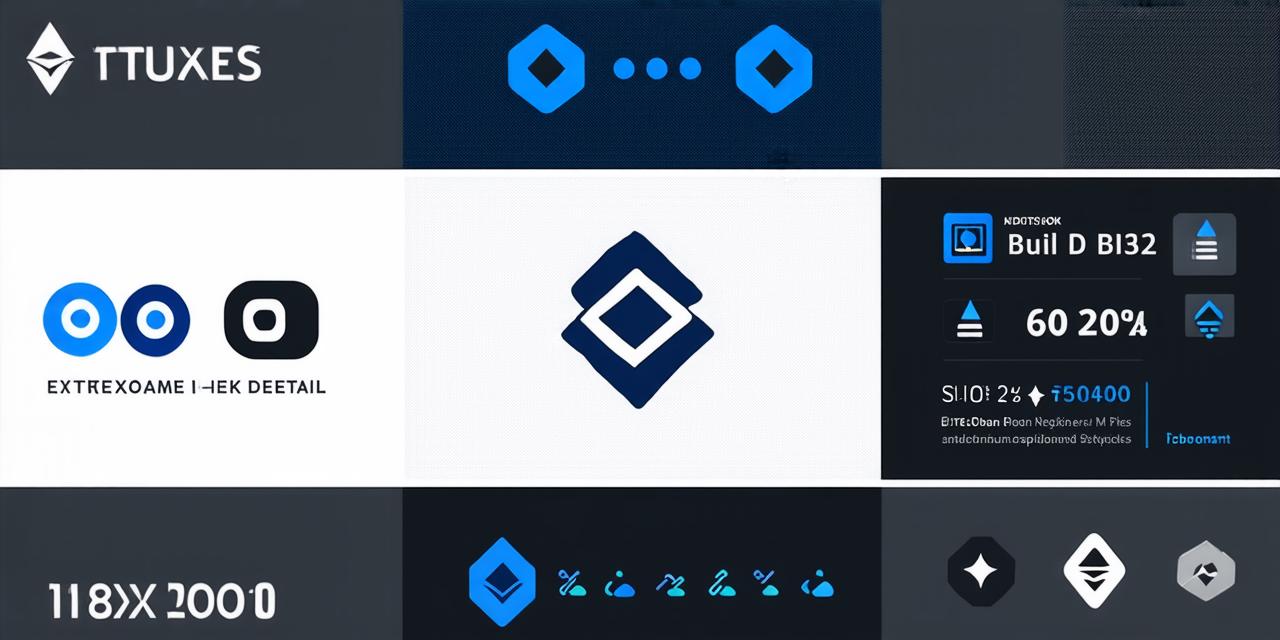Blockchain technology is revolutionizing the way we think about data management and security. With its decentralized and secure nature, blockchain has found applications across a wide range of industries, including finance, healthcare, supply chain management, and more. In this guide, we will explore some of the most promising use cases for blockchain technology and provide best practices for implementing them effectively.
1. What is Blockchain?
Blockchain is a decentralized, distributed ledger that records transactions in a secure and transparent manner. The core concept behind blockchain is that it allows for the creation of a tamper-proof record of events that can be verified by anyone on the network. This makes blockchain an ideal solution for applications that require high levels of security and transparency.
2. The Benefits of Blockchain Technology
The benefits of blockchain technology are numerous, including:
- Decentralization: Blockchain is a decentralized system, meaning that there is no central authority controlling the network. This eliminates the need for intermediaries and reduces the risk of fraud and corruption.
* Security: Blockchain uses cryptographic algorithms to secure transactions and prevent unauthorized access. This makes it an ideal solution for applications that require high levels of security, such as financial transactions and healthcare data management.
* Transparency: All transactions on a blockchain are recorded in a public ledger, which can be accessed by anyone on the network. This provides complete transparency and allows for easy verification of transactions.
* Trust: Blockchain eliminates the need for trust between parties, as all transactions are verified and validated by the network.
3. Real-Life Examples of Blockchain in Action
Now that we have a better understanding of what blockchain is and the benefits it offers let’s take a look at some real-life examples of how blockchain technology is being used across various industries:
Blockchain technology has found several applications in the finance industry, including:
- Cryptocurrencies: Bitcoin and other cryptocurrencies are built on blockchain technology. They provide a secure and decentralized way to conduct financial transactions without the need for intermediaries.
* Smart Contracts: Smart contracts are self-executing contracts that are stored on a blockchain. They automate the execution of contracts, eliminating the need for intermediaries and reducing the risk of fraud.
* Trade Finance: Blockchain technology is being used to streamline trade finance processes by providing a secure and transparent way to conduct transactions.
Blockchain technology is also being used in healthcare, including:
- Electronic Medical Records (EMRs): Blockchain technology can be used to store EMRs securely and transparently, eliminating the need for intermediaries and reducing the risk of fraud.
* Supply Chain Management: Blockchain technology can be used to track the movement of medical supplies across the supply chain, providing complete transparency and eliminating the need for intermediaries.
* Clinical Trials: Blockchain technology can be used to securely store clinical trial data, ensuring that it is accessible and verifiable by anyone on the network.
Blockchain technology is being used in supply chain management to provide greater transparency and reduce the risk of fraud. This includes:
- Product Tracking: Blockchain technology can be used to track the movement of products across the supply chain, providing complete transparency and eliminating the need for intermediaries.
* Provenance: Blockchain technology can be used to securely store the provenance of products, ensuring that they are authentic and have not been tampered with.
* Compliance: Blockchain technology can be used to ensure compliance with regulations and standards, reducing the risk of fraud and improving supply chain efficiency.
4. Best Practices for Implementing Blockchain Technology
Now that we have seen some real-life examples of how blockchain technology is being used across various industries, let’s take a look at some best practices for implementing blockchain technology effectively:
a) Define the Problem and Objectives
Before you start implementing blockchain technology, it is important to define the problem you are trying to solve and the objectives you want to achieve. This will help you identify the most appropriate use case for blockchain technology and ensure that your implementation is successful.
b) Identify the Key Stakeholders
Identifying the key stakeholders involved in the process is critical to the success of any blockchain implementation. This includes understanding their needs, requirements, and expectations, as well as any potential roadblocks or challenges they may face.
c) Choose the Right Blockchain Platform

There are several blockchain platforms available, including public and private networks. The choice of platform will depend on your specific use case and requirements.
Before investing in a full-scale implementation, it is important to develop a proof of concept to test the feasibility of your use case. This will help you identify any potential issues or challenges and refine your design before moving forward.
e) Ensure Compliance with Regulations
Blockchain technology may be subject to regulations in certain industries, such as finance and healthcare. It is important to ensure that your implementation complies with all relevant regulations and standards to avoid legal and financial risks.
f) Implement Robust Security Measures
Security should be a top priority when implementing blockchain technology. This includes using strong encryption algorithms, conducting regular security audits, and implementing access controls to prevent unauthorized access.
Implementing blockchain technology requires a team with the right skills and knowledge. It is important to provide your team with the necessary training and resources to ensure that they are able to design, develop, and maintain your implementation effectively.
Summary
Blockchain technology has found applications across a wide range of industries, including finance, healthcare, supply chain management, and more. With its decentralized and secure nature, blockchain provides a tamper-proof record of events that can be verified by anyone on the network. By understanding the benefits of blockchain technology and following best practices for implementation, you can harness its power to transform the way your organization operates and stay ahead of the competition.
FAQs:
Q: What is the difference between public and private blockchain networks?
A: Public blockchain networks are open to anyone and provide greater transparency but may have slower transaction speeds and higher fees. Private blockchain networks are restricted to a select group of participants and provide faster transaction speeds and lower fees but may have less transparency.
Q: Is blockchain technology subject to regulations?
A: Blockchain technology may be subject to regulations in certain industries, such as finance and healthcare. It is important to ensure that your implementation complies with all relevant regulations and standards to avoid legal and financial risks.
Q: How can I develop a proof of concept for my use case?
A: Developing a proof of concept involves identifying the key components of your use case, designing a prototype, and testing it in a controlled environment. This will help you identify any potential issues or challenges and refine your design before moving forward with a full-scale implementation.



